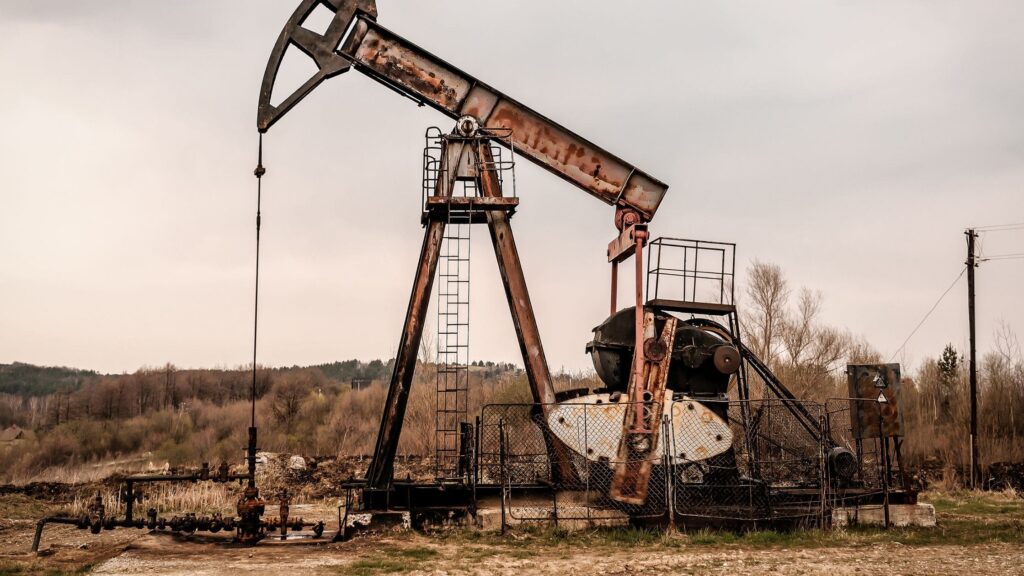Is ownership of mineral rights transferable?
Both types of rights can be transferred to a new owner as a gift, in the event of death or divorce, or through sale or placing in a trust, similar to surface mineral rights.
Mineral rights (oil and gas) can be transferred either as probate of a deceased owner’s will or in accordance with state intestate succession laws, especially when the mineral owner dies and does not leave a will detailing any claims.
As a rule, surface and mineral rights are both transferable to the same owner except when they have been severed from each other. Once separated, changing ownership of one does not affect ownership of the other.
How to prepare for transferring ownership of mineral rights?
Sellers and buyers or anyone transferring mineral rights needs to be aware that there are different transaction processes to go through when transferring oil and gas rights. Here is a breakdown of the procedure.
- In most cases, when you want to transfer rights, it is without issues. You have to confirm that you have the title to the mineral rights. You can search for title documents at the district registrar’s office or check online if the community has a database. Or hire landmen to do it on your behalf. They are specialists in this field.
- While the land that sits on top of the minerals may be in your name on the property deed, you need to make sure the rights to the minerals have not been separated from the rights to the rest of the land at an earlier date by sale or other transaction.
- After confirming the transfer rights at the local government office, you have to get an attorney from a recognized law firm to start drawing up a new mineral rights deed transfer document and any other required forms which you sign to complete the transaction and transfer to the person or entity in question. This document then needs to be filed in the jurisdiction where the property resides.
How to get mineral rights (Oil and Gas) ownership transferred?
By Deed
- For transfers of mineral rights ownership by deed, a mineral deed needs to be created and registered for such transactions.
- Check with the local government or state recorder of deeds where the land is located to see if a form for a mineral deed can be printed for use.
- Search on the internet for a mineral deed form if your county does not have one. Another option is to have a lawyer draft one for you.
- The deed must be signed in front of a notary. When going to sign the deed, take your driver’s license or another acceptable form of identification.
- Copies of the deed are sent to the person granted the mineral rights after it has been approved.
By Will
- Mineral rights may also be subject to transfers by way of a will. In the event of death, the right to the minerals passes to the person(s) named as beneficiaries. In the absence of specific heirs, the mineral rights pass to the beneficiary of the residual surface estate and real estate.
- We strongly recommend that you meet a lawyer to review your will and ensure that you follow the proper procedures. If you have no will, you may need to begin the process of drawing up one.
- A better way to deal with mineral rights via a will is to create a family holding company and assign the rights to the minerals to the company, such as a limited liability company (LLC) or a partnership. You should consult an estate planning attorney since this is a complicated process.
With a Lease
- You will need a contract if you want to lease mineral rights to another party. The lease grants the lessee the right over land use, such as access for drilling a natural gas well or oil well and exploiting and production of minerals on the leased tract or parcel of land.
- When a lease is signed, the lessee typically pays the mineral owner a bonus, based on sales revenue from the minerals exploited. Provision for royalty payments and any oil and gas royalty interests is typically included in leases, whereby landowners receive money made from the mining and development of the minerals.
- When no minerals are extracted and there is no production, leases often contain provisions or terms for the payment of rent or other compensation. Any lease agreement should be drawn up after consultation with a local attorney from the area.
Consultation with an attorney or mineral rights expert to seek assistance is advisable before undergoing any such transfers.
How to transfer mineral rights after the owner’s death?
Transferring mineral rights following someone’s death depends on (1) if the owner left a will and (2) if the deceased’s estate is subject to probate. Depending on where the person died, some states require ancillary probate for mineral rights before any transfer or sale occurs. The simplest case is referred to as a fee simple estate, in which the two types of rights have not been previously separated, and it is also clear that conveyance of the property and rights presents no legal issues.
To transfer mineral rights after death
- You should confirm with the district registrar where the land and mineral rights are located to confirm how to transfer rights after death. You will be required to present some form of identity to prove you’re related to the owner of the minerals.
- Once you have filed the affidavit claiming heirship at the office of the county clerk (or with the official responsible for titles and deeds), you need to contact the oil and gas well operators to learn what documents are required to enable them to take ownership of the minerals.
- Following the operator’s review of the documents and the receipt of a transfer of ownership order, ownership will be transferred to the person or entity designated. If you are the new owner, as soon as you complete the transfer of ownership order and sign it, you will be entitled to receive royalty checks.
- It can be challenging dealing with a landman without the help of an attorney. So get someone with expertise, relevant knowledge, and experience to help if you need it.
How to transfer mineral rights after divorce?
Transferring mineral rights as part of a divorce settlement is an easy process. Often divorcees in energy-rich areas of the United States struggle with the issue of shared mineral rights. Legal aspects surrounding these rights are similar to those that pertain to any other type of jointly-held real estate or property; however, interpretations of the law may vary depending on the state.
As you go through a divorce and contemplate the disposal of shared rights to minerals, you will need to keep the following key points in mind:
- The county in which the rights are registered will require a divorce decree to start the transfer process.
- The operator will also need a copy of the divorce decree and recorded conveyance to begin the process at their end.
- The operator responsible for mining or exploiting the minerals will review the documents before drawing up new ownership orders.
- The process is complete when you approve the mineral right deed and sign it.
Can you transfer mineral rights to trusts?
Yes, it’s possible to place mineral rights in trusts and it’s the best option especially if adequate preparations were not made for these rights before the passing of the owner.
Transferring mineral rights to trusts can be done in different ways which include:
- If the land or property is to be inherited by a descendant, a trust can be created and the property deeded to it. The new deed would then be drafted, executed, and recorded with the probate clerk.
- If the mineral rights owner has only rights to the minerals and is not the property owner, they would need to contact the land owner and inquire as to how they can transfer deposits and royalty interest.
Land record offices in the appropriate counties must be notified about the transfer of rights.
How does an inherited mineral rights transfer work?
It’s likely that if a person died leaving a will, they assigned someone to oversee their assets during the process of establishing the will’s validity. The executor or attorney in charge may transfer mineral rights. The transfer may be to another person as part of an inheritance, which allows them to mine and sell the minerals or create a mineral lease agreement, giving someone else the right to exploit the minerals.
To transfer inherited mineral rights or mineral interest, an attorney or title company must conduct a title search to ensure that the property conveyance is legal.
A mineral deed should contain all the relevant information and a detailed description of all the rights and royalties you are entitled to receive when there has been a previous separation of surface land and mineral rights. You should also be aware that in most states such royalties will be subject to tax.
Conclusion
When buying properties, it is important to check if they come with mineral rights. In the state of Texas, the mineral rights do not automatically accompany surface rights. The same is true in Oklahoma, Pennsylvania, Louisiana, Colorado, and New Mexico. In North Carolina, property owners who sell must disclose whether they are selling mineral rights with the property or not.
Homebuyers should be made aware by the seller of potential resources beneath the land for sale, so they don’t discover that they can’t use the minerals on the land. The seller should be explicit regarding the rights the buyer will receive as a result of the sale. Or which parties hold the title to any minerals on the land, if not the seller.
As a buyer, it is always best to do your research and seek the advice of attorneys with experience in the local laws in such cases.
FAQ
-
Do mineral rights automatically transfer with the property?
No law makes it compulsory to transfer property or land with mineral rights to a buyer. Only when the owner and seller explicitly declare in a statement that it’s part of the deal.
-
Can mineral rights be transferred separately?
Mineral rights can be transferred to another owner separately from the property as it’s allowed by law for mineral rights owners to be able to sell or lease the mineral rig.



